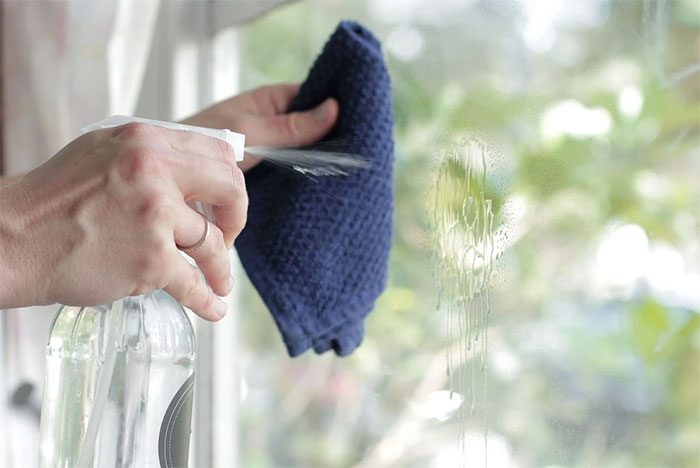Dish soap is an essential and widely used product that provides optimal cleaning effectiveness. However, there is one thing that few people know: not everything should be cleaned with dish soap.
From window curtains to barware, experts will repeatedly tell you that dish soap – the affordable “magic potion” sold everywhere – is the detergent you should turn to for almost every task. Yet, whether you believe it or not, there are still tons of household items and surfaces that dish soap can damage.
Things You Should Not Clean with Dish Soap
1. Coffee Machines

Coffee machines are usually very expensive, so clean them properly to maintain their durability.
Jessica Samson, a cleaning expert at The Maids in Nebraska, states: “Using dish soap to clean coffee machines will leave a soapy mess that is very difficult to clean. Instead, you should use a vinegar solution to clean the inside of the coffee machine, which is much more effective. While using dish soap may be tempting, trust me, don’t do it.”
2. Granite and Other Stone Countertops
Carlos Garcia, CEO of Total Clean in the UK, explains: “Dish soap can leave residue on porous surfaces like granite and other stones. Instead, use a cleaner specifically designed for stone surfaces to avoid any damage.”
3. Cast Iron Cookware
Garcia adds: “Dish soap can strip the non-stick coating off cast iron pans, so instead of cleaning them like regular dishes, use some hot water and a brush. This method is much more effective.”
4. Stainless Steel
Sokolowski mentions: “Dish soap can leave streaks or smudges on stainless steel surfaces. Therefore, opt for a solution specifically designed for stainless steel appliances.”
5. Mirrors
“Just like on the floor, dish soap can leave residue on mirrors if not rinsed off properly and can waste a lot of water. Instead, use diluted vinegar or a specialized glass cleaner for mirror cleaning,” recommends Schulz.

For mirrors, it’s best to use a specialized cleaner to easily restore the glass’s clarity.
6. Marble Countertops
Alicia Sokolowski, President and Co-CEO of AspenClean in Vancouver, notes that dish soap can corrode and dull marble surfaces.
7. Hardwood Floors
While you need to damp mop hardwood floors, do not use dish soap. Schulz states: “This can leave residue that damages its appearance.”
8. Leather Items
Natural oils help maintain leather’s quality, and using water will strip away that protective layer. Schulz explains: “This will lead to dry and cracked leather.”
9. Wooden Furniture
Garcia mentions: “Never use dish soap on wooden furniture as it can strip the protective finish and cause the wood to look discolored. When cleaning wood, it’s really important to use a cleaner specifically designed for wood surfaces, as this will enhance the wood’s appearance without compromising the finish.”

Dish soap can strip the protective finish and cause wood to appear discolored.
10. Gold-Plated Items
Sokolowski advises that dish soap can scratch and remove gold plating. When it comes to jewelry and gold-plated surfaces, always use a specialized cleaner.
11. Dishwashers
Ryan Knoll, owner of Tidy Casa in Arizona, explains: “The main reason is that dish soap creates a lot of foam or bubbles. When used in a dishwasher, this foam can overflow and spill onto the kitchen floor, creating a mess and potentially damaging the machine or the floor. Meanwhile, detergents specifically formulated for dishwashers have less foam and are specially blended for use in these machines.”
Finally, remember that you should not mix dish soap and bleach. Knoll states: “You should not combine bleach with dish soap because this combination can produce toxic gases. While most modern dish soaps do not contain ammonia, some might.”
When bleach and ammonia are mixed, they react to form chloramine gas, which is very harmful if inhaled. Even if your dish soap does not contain ammonia, it may still include other chemicals that, when mixed with bleach, can create toxic gases or unpleasant fumes. You will be safer if you avoid mixing these two products.”
In conclusion, while dish soap is extremely useful in countless ways, from stain removal to unclogging drains, make sure that the surface you are cleaning does not require a cleaner specific to each type of material for the best results.





















































